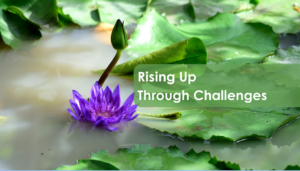
In today’s world, where opinions are often polarized, and discussions can quickly become contentious, it can be challenging to engage in conversations with people we disagree with. However, these interactions are essential for fostering understanding, empathy, and unity. Whether it’s about politics, social issues, or personal beliefs, learning to listen effectively to those with differing views is a valuable skill. This blog explores practical techniques to implement while listening to people you disagree with, helping you navigate these conversations with grace and openness.
1. Practice Active Listening
Active listening is the foundation of constructive dialogue. It involves fully focusing on the speaker, understanding their message, and responding thoughtfully. When someone shares their opinion, resist the urge to interrupt or formulate your response while they are still speaking. Instead, listen attentively and with an open mind.
How to Practice Active Listening:
- Make Eye Contact: Show that you are engaged and paying attention.
- Nod and Use Affirmative Gestures: These small actions indicate that you are following along.
- Paraphrase and Reflect: Repeat back what the speaker has said in your own words to confirm understanding.
- Ask Open-Ended Questions: Encourage further elaboration and clarification.
For example, you might say, “I hear you saying that [insert their point]. Can you tell me more about how you came to that conclusion?”
2. Cultivate Curiosity
Approach the conversation with genuine curiosity. Instead of judging the other person’s opinion as right or wrong, try to understand the experiences and reasoning that led them to their beliefs. This mindset can transform a potentially confrontational discussion into an opportunity for learning and connection.
Questions to Foster Curiosity:
- “What experiences have shaped your perspective on this?”
- “How did you develop this viewpoint?”
- “What are the main values or principles that inform your opinion?”
By asking these questions, you demonstrate respect for the other person’s experiences and acknowledge that everyone has a unique story.
3. Manage Your Reactions
It’s natural to feel triggered or defensive when confronted with opposing viewpoints. However, managing these emotional reactions is crucial for maintaining a respectful and productive conversation. If you feel yourself becoming agitated, take a moment to breathe deeply and ground yourself.
Techniques for Managing Reactions:
- Take Deep Breaths: This can help calm your nervous system and clear your mind.
- Pause Before Responding: Give yourself a moment to collect your thoughts before speaking.
- Acknowledge Your Feelings: Recognize and accept your emotions without letting them dictate your response.
If the conversation becomes too heated, it’s okay to take a break. You can say, “I appreciate this discussion, but I need a moment to process my thoughts. Can we revisit this later?”
4. Avoid Making Assumptions
Assumptions can hinder understanding and create unnecessary conflict. Avoid assuming that you know why someone holds a particular belief or that their opinion is indicative of their entire character. Instead, focus on the specific issue at hand and seek to understand their reasoning without generalizing or stereotyping.
Strategies to Avoid Assumptions:
- Ask Clarifying Questions: “Can you explain what you mean by that?”
- Check for Understanding: “Just to clarify, are you saying [insert their point]?”
This approach not only prevents misunderstandings but also shows that you value the other person’s perspective.
5. Stay Unattached to the Outcome
Entering a conversation with the goal of changing the other person’s mind can create tension and resistance. Instead, focus on understanding their viewpoint and respectfully sharing your own. It’s okay to disagree, and the goal is not necessarily to reach a consensus but to have a meaningful exchange of ideas.
How to Stay Unattached:
- Embrace the Diversity of Thought: Recognize that differing opinions can coexist and that diversity of thought is valuable.
- Focus on Connection, Not Conversion: Aim to connect on a human level rather than convincing the other person to adopt your perspective.
- Accept Differences: It’s okay to leave a conversation without agreement. What’s important is that both parties feel heard and respected.
6. Reflect on Your Own Beliefs
Engaging with opposing viewpoints offers an opportunity for self-reflection. Consider why certain opinions trigger you and examine the experiences and values that have shaped your own beliefs. This introspection can lead to a deeper understanding of yourself and help you approach future conversations with greater empathy and awareness.
Questions for Self-Reflection:
- “Why do I hold this belief?”
- “What experiences have influenced my perspective?”
- “Are there areas where my views have evolved over time?”
By understanding your own narrative, you can better appreciate the narratives of others and approach discussions with humility and openness.
7. Seek Common Ground
Despite differing opinions, shared values or goals often serve as a foundation for connection. Identifying and emphasizing these commonalities can help bridge divides and foster a sense of unity.
Ways to Find Common Ground:
- Highlight Shared Values: “It sounds like we both care deeply about [insert shared value].”
- Acknowledge Valid Points: “I agree with you on [insert specific point].”
- Explore Solutions Together: “How can we find a solution that respects both of our perspectives?”
Finding common ground doesn’t mean compromising your values, but it does mean recognizing and respecting the humanity in each other.
Conclusion: Embracing Unity in Diversity
Listening to people we disagree with is not just about hearing different viewpoints; it’s about fostering empathy, understanding, and connection. In a world where division often seems more prominent than unity, these conversations are opportunities to build bridges and strengthen our collective humanity.
By practicing active listening, cultivating curiosity, managing our reactions, avoiding assumptions, staying unattached to outcomes, reflecting on our beliefs, and seeking common ground, we can engage in more meaningful and respectful dialogues. These techniques not only enhance our interactions with others but also contribute to a more inclusive and compassionate world.
As we navigate these challenging times, let us remember that unity is not about uniformity but about embracing our shared humanity. By listening with an open heart and mind, we can honor the diverse tapestry of experiences and perspectives that make up our global community. In doing so, we can move closer to a future where we celebrate our differences and work together towards a common good.
Wishing you bliss and love on life’s journey, Beth
#1 Amazon Best-Selling Author of Angels, Herpes and Psychedelics: Unraveling the Mind to Unveil Illusions in 10+ categories.
🎙️Catch the entire LIVE episode where I answer the listener’s question here: https://youtube.com/live/Mg6BocpOqYo

Want to learn more? Visit my website, www.BethBell.me, and take the State of the Heart Assessment. It’s free and will help you understand which stage your heart is in and what to do about it. Please visit my YouTube channel to watch, like, and subscribe to my show, “AWAKEN Inner Wisdom.” You’ll hear intuitive insights to assist you on your awakening and ascension journey.






